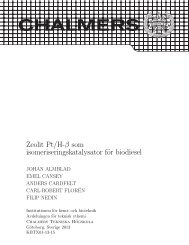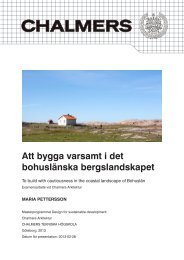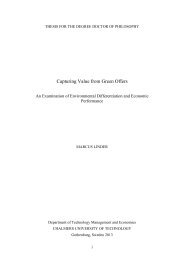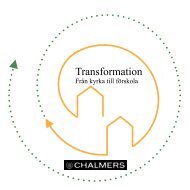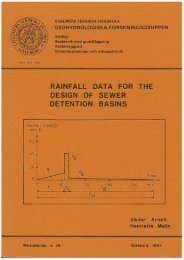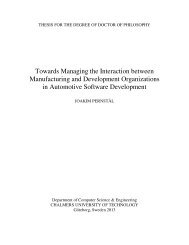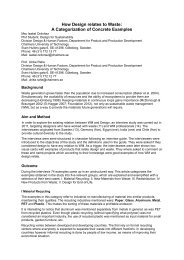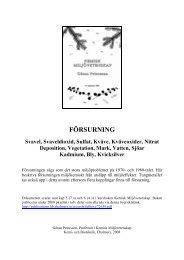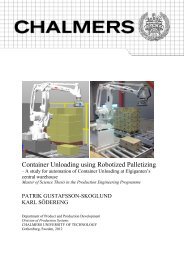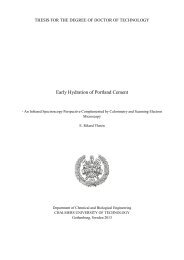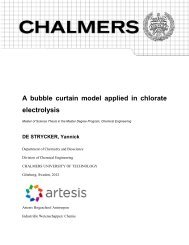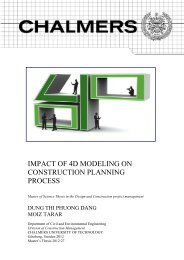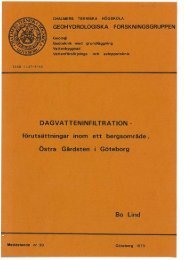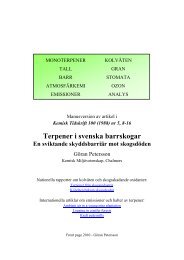Påverkan på energianvändning och termisk komfort vid ...
Påverkan på energianvändning och termisk komfort vid ...
Påverkan på energianvändning och termisk komfort vid ...
You also want an ePaper? Increase the reach of your titles
YUMPU automatically turns print PDFs into web optimized ePapers that Google loves.
The influence of unstable control on energy use and thermal comfort<br />
Diploma Thesis in the Engineering Programme<br />
Building and Civil Engineering<br />
JENS RYBERG, MARTINA JORDESTEDT<br />
Department of Energy and Environmental Engineering<br />
Division of Building Services Engineering<br />
Chalmers University of Technology<br />
ABSTRACT<br />
The purpose of the study is to investigate the possible effects of an unstable<br />
ventilation system and its influence on energy use and thermal comfort. The report<br />
also explores how qualified personal working with HVAC view and handles system<br />
control.<br />
In order to meet the requirements in energy efficiency and a comfortable indoor<br />
climate control regulation is a prerequisite. With optimized increased complexity of<br />
the climate systems, it becomes more challenging to control the system and the risk of<br />
unstable control increases. No previous studies about what affect an unstable system<br />
can have on energy use and thermal comfort have been found.<br />
The report is based on several tests were the controlling variable has been increased<br />
until the system becomes unstable. Two different types of unstable systems have been<br />
investigated. During the first trials the flow was unstable while the temperature where<br />
constant and during the second trials the temperature was unstable but the flow<br />
constant.<br />
The results indicate that the energy use, both for the fans and the air heater, is<br />
drastically increased when the system is unstable. The results on the affects in thermal<br />
comfort showed no noticeable differences during the stable and unstable condition<br />
under the tests. This indicates that a system can be unstable without anybody noticing<br />
it but will most likely increase the energy.<br />
Qualified people believe that unstable control is quite common in buildings. One<br />
possible consequence of unstable control is shortened lifespan for components in the<br />
system.<br />
The knowledge about control theory among HVAC workers in Sweden is generally<br />
assessed as low. The lack of willingness among the property owners to invest in<br />
improvements in ventilation system varies and often depends on the length they<br />
intend to keep the building. Cost aspects and lack of knowledge among the property<br />
owners results in that many buildings HVAC system is not up to date.<br />
Key words: Unstable control, thermal comfort, energy use, ventilation system<br />
II



